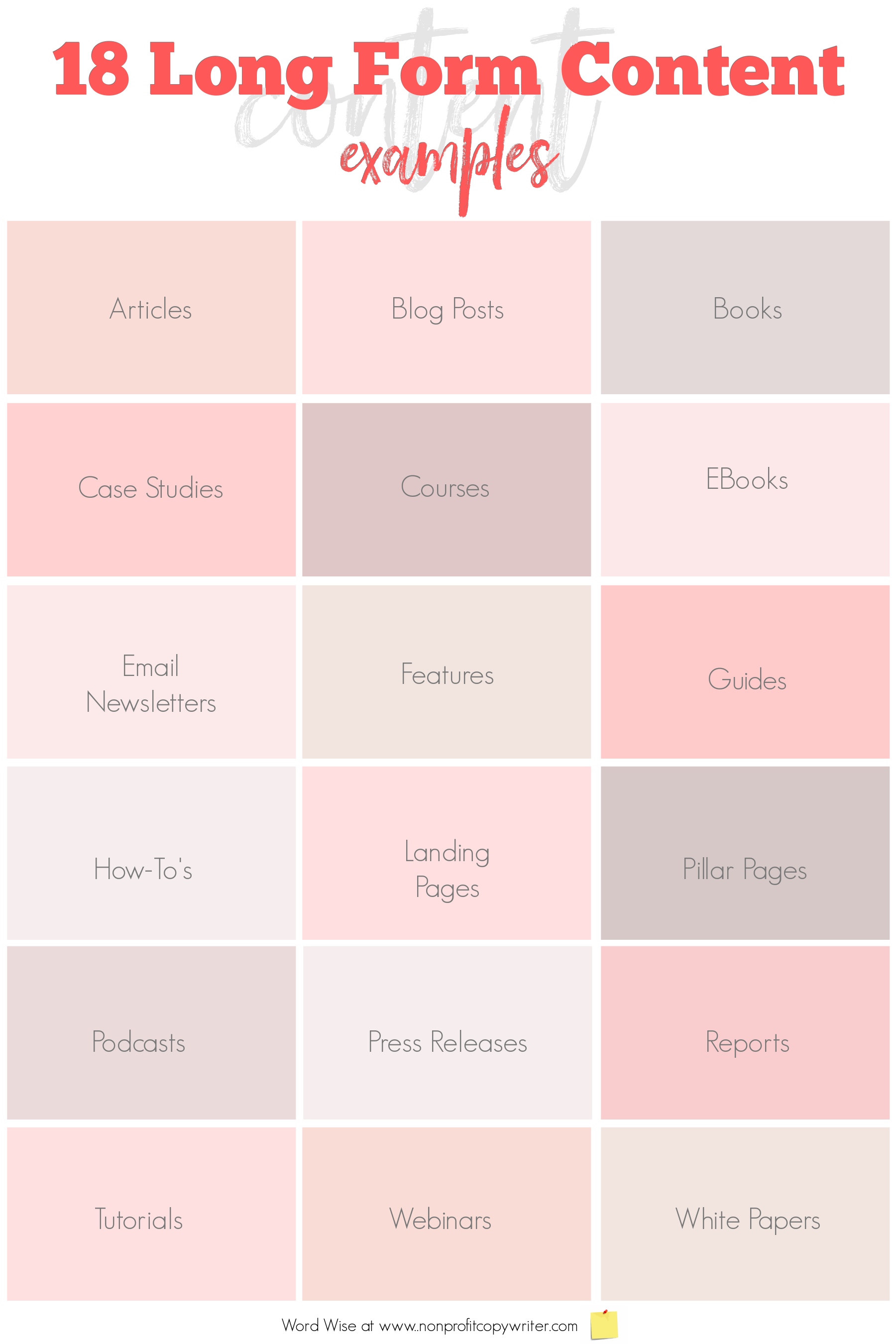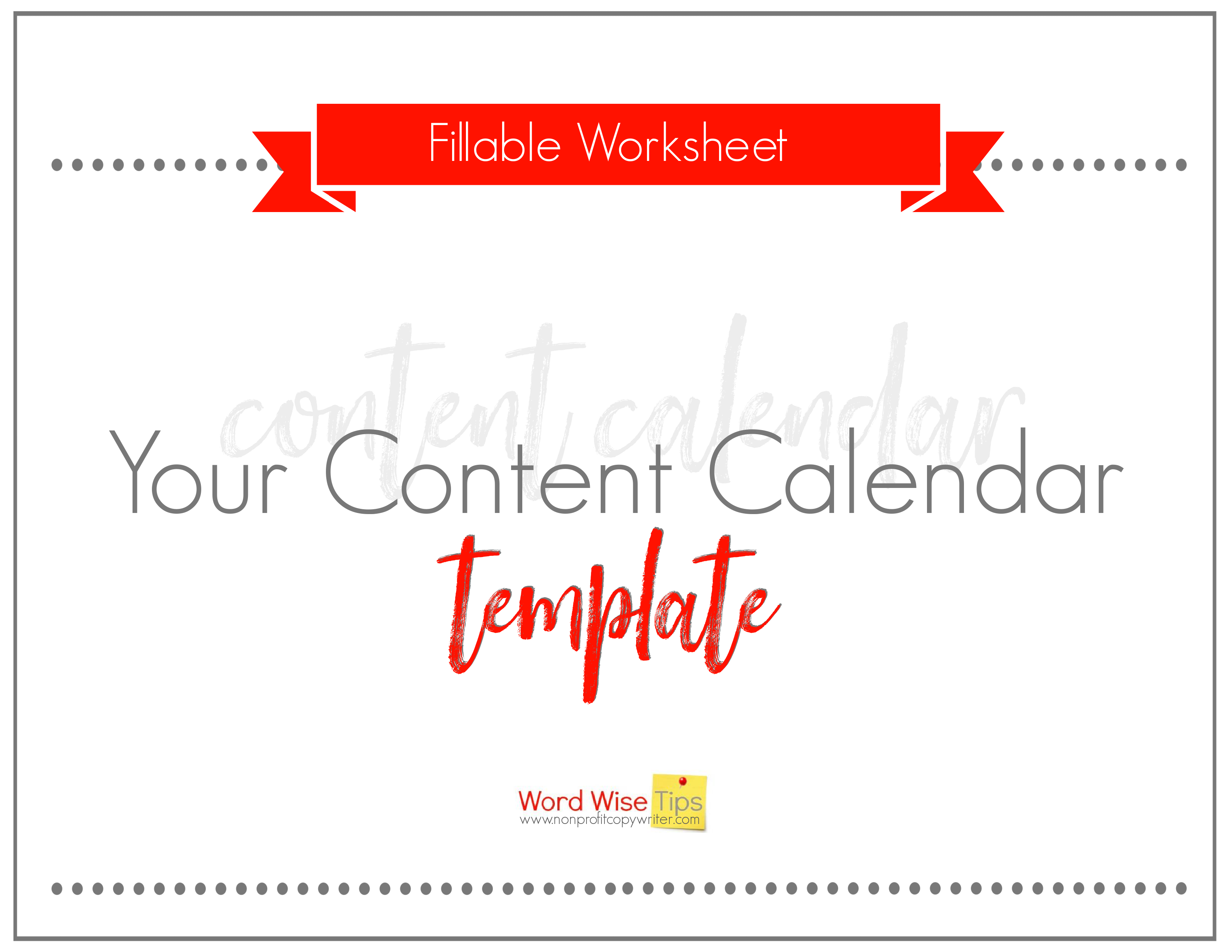Save Time: Get 5 Simple Writing Tips
you can put to use in 10 minutes
What Is Long Form Content?
Award-winning writer Kathy Widenhouse has helped hundreds of nonprofits and writers produce successful content , with 750K+ views for her writing tutorials. She is the author of 9 books. See more of Kathy’s content here.
Updated 11.25.25
The earliest days of the internet championed short form content over long form content. Readers skimmed online. Long, unbroken paragraphs were difficult to read on screen. Lots of white space, bullet points, and plenty of subheads meant readers could scan, absorb, and move on.
“Look for the clutter in your writing and prune it ruthlessly,” said William Zinsser in On Writing Well. “Be grateful for everything you can throw away.” I embraced this no-frills approach to writing tight, concise web content as well as everything I produced for print.
But now, long form content has become more prevalent online – written in a conversational style, mind you, with lots of breathing room for the internet reader. For some, long form has even become the preferred content writing form.
Meanwhile, that leaves online publishers increasingly confused about word count. What’s the ideal content length? Is long form content better than short?
What is long form content?
Long form content is written project that clocks in at 1,200 words or more.
If you want to be technical about it, some gurus say long form content is anything more than 750 words. Others say long form content is at least 2,000 words in length. Still others say a piece needs at least 3,000 words to earn the long form content moniker.
Regardless, long form content has substance. Its goal is to answer a particular question or cover a specific topic in depth. Think of long form content as a complete meal.
Long form content vs short form content – what’s the difference apart from length?
Short form content is a written project that’s less than 1,200 words long. It’s easy to read and digest in just a few minutes. Think blog posts, email, short articles, and social media posts.
And while long form content addresses a topic from different angles, short form content has a singular goal. Its purpose is to communicate one message.
That’s not to say that short form content is just fluff. Quite the contrary. The best written content – long or short – offers useful, valuable, or entertaining information to the reader. Short form content simply does so in a tight structure, as a tidbit or small portion rather than a full portion.
If long form content is a full meal, then short form content is a snack – albeit a nutritious, sustaining one.
Plan and track your content using this fillable and re-usable Content Calendar Template
What are some long form content examples?
|
|
What are the benefits of writing long form content?
Several forms long form content stand alone as individual projects: books, ebooks, podcasts, courses, and webinars, for instance. Their benefits are clear. A book or an online course are valuable pieces of intellectual property in their own right. A standalone work can reach a unique audience both in print and online.
But what are the advantages of writing long form content online – content that’s part of a larger site or larger work? That would include articles, blog posts, landing pages, pillar pages, email newsletters, and white papers.
Long form content’s biggest benefit is online visibility. High-quality long form content pages return …
- Better page rankings. Long form content simply offers more online real estate than short form content. That means there’s more space to use primary keywords as well as secondary keywords and long tail keywords associated with the main topic. Well-placed keywords help drive organic search engine page results rankings. Higher rankings mean more eyeballs on your page.
- More inbound links. Long form content generates an average of 77.2% more links than short form content, according to a recent study. When other sites link to yours, search engines consider your site as a more credible source and return your results accordingly: higher on search engine results pages.
- Longer engagement. More content on a single page? If it’s good stuff, the reader stays longer to read it. Time on a page tells Google that you’ve given a visitor what she came for. Search engines take note in their algorithms and respond accordingly.
- Credibility. Apart from online visibility, long form content offers a less data driven benefit. It brands you as an authority. A well-written page of long form content gives the reader a more thorough explanation than a quick summary. All that informational goodness you pour onto your page helps answer a reader’s questions. Your long form content, then, demonstrates that you are a reliable source of information and helps establish your expertise in your niche.
Is long form content better than short form content?
For the user, short form content is easy to read and digest. It offers quick answers to specific problems or questions. It’s simply less overwhelming.
Plus, when you link your short pieces to other pages on your site, your short form content can extend reader engagement.
As for the writer, short form content takes less time to create – provided you know your niche and understand your topic.
So while long form content has a record of boosting search engine results, both long form content and short form content have a place in a balanced content writing strategy.
Are they part of yours?
More Content Writing Tips
How To Choose Content Topics for Your Content Calendar ...
How to Create a Content Calendar ...
The Skinny on Thin Content: Don’t Put Rankings Over Readers ...
4 Types of Content: The Magic Is In the Mix ...
How to Create Valuable Content (Not Informational Junk Food) ...
What Is SEO Content Writing? Tips for Strong Search Results ...
How to Build a Content Writing Strategy for Your Blog or Website ...
5 Web Content Copywriting Tips ...
Searching for Keywords? Use These SEO Writing Terms ...
Long Tail Keywords: A Quick Guide to Using Unpopular Search Terms ...
6 places to use keywords in web pages and blog posts ...
3 Tips for Writing Conversationally Online (and Off) ...
More Online Writing Tips on our Pinterest board ...
As an Amazon Associate I earn from qualifying purchases.
Share This Page

Named to 2022 Writer's Digest list
BEST GENRE/NICHE WRITING WEBSITE


Stop Wasting Time!
Grab your exclusive FREE guide, "5 Simple Writing Tips You Can Put to Use in 10 Minutes or Less"













